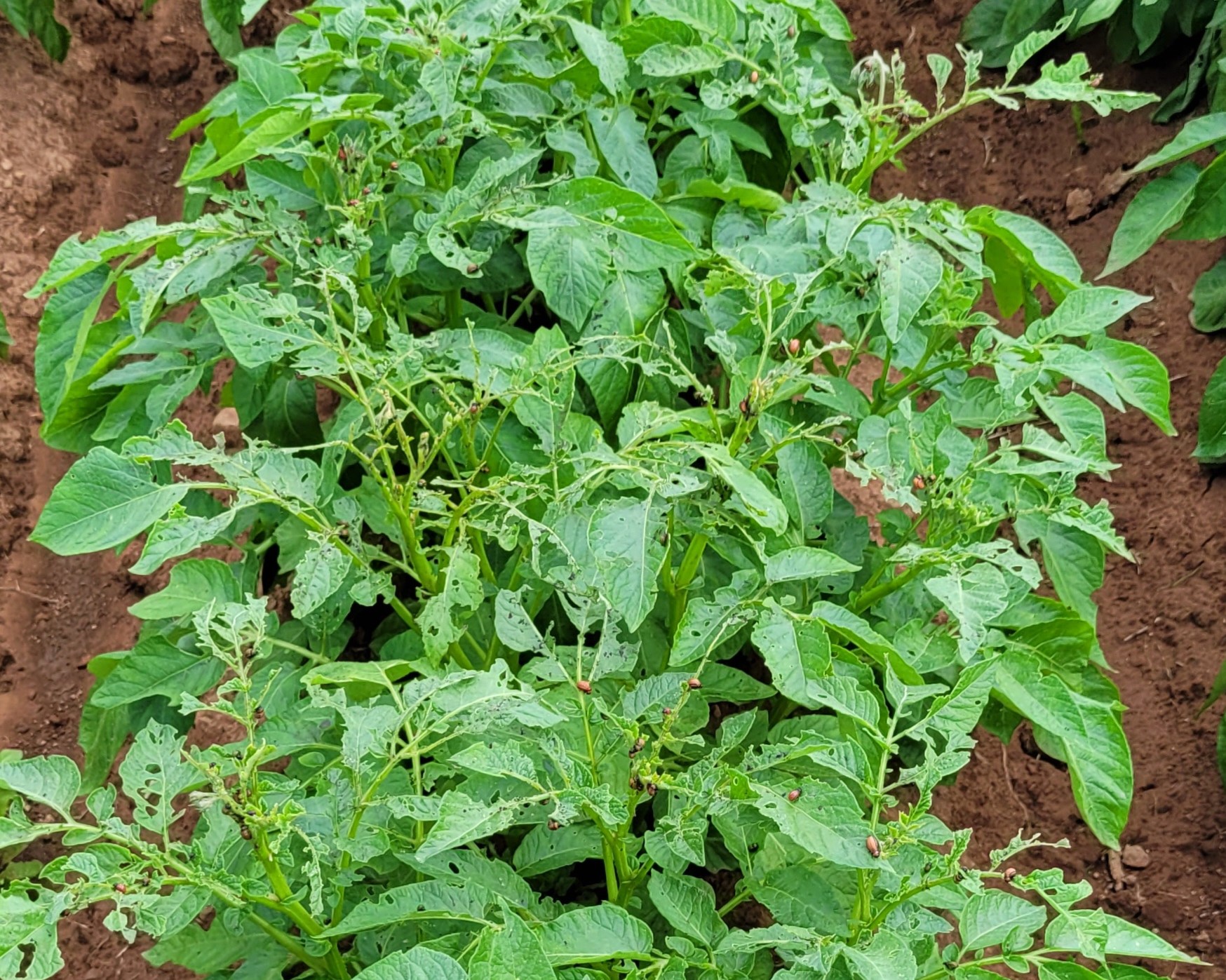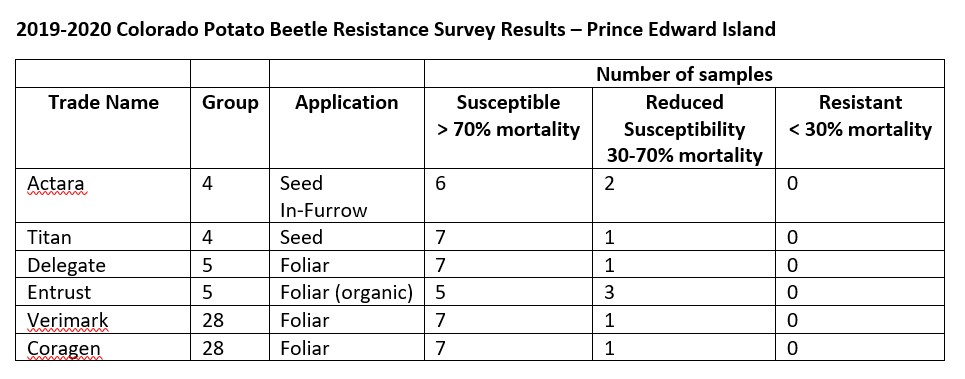
17 Jul Agronomy Update – July 13
Hi everyone. Another muggy week in PEI. Lots of reports now of drowned-out spots in the low areas of fields across the province. As a few growers have remarked…better to have those spots be drowned out now than in September. There are larger drown-out issues in some fields where there soil compaction is an issue. I’ve also seen some spotty emergence in field where fresh-cut seed was planted and was then followed by too much rainfall. Some varieties (for example, Mountain Gem Russet) have been shown to perform better being cut 7-10 days ahead of planting, allowing time for suberization and wound healing. Generally, the fields planted in May look quite good and are very rapidly growing, with the earlier-planted fields now at row closure.
Spornado Results: July 11th
No late blight spores were detected from the 12 sites across the province. There were Bortrytis spores (grey mold) spores collected at about half the sites.
Airspore Spore Results:
No Late Blight Spores Detected July 7th, 10th, or 12th.
| Early Blight | Brown Spot | Grey Mold | |
| West Prince | 1 | 0 | 23 |
| East Prince | 0 | 4 | 37 |
| Queens | 5 | 0 | 123 |
| Kings | 13 | 0 | 48 |
Spore counts are an average of the number of spores reported across sites in those regions on July 7th and July 10th. Early blight spore counts are generally low, with the large majority of sites still reading zero. Even more so for brown spot. The lack of hot, dry weather as well as the slower progression can explain these lower spore counts, but expect them to climb over the next week or so. Grey mold (Bortrytis) spores are starting to climb, particularly in the eastern half of the Island. However, counts are still relatively low and I haven’t heard many reports of grey mold yet. Those will susceptible varieties should take this into account when making plans for upcoming fungicide sprays.
Crop Update Meeting:
The second Crop Update Meeting of the season is scheduled for Tuesday, July 18th at 8:00 am at the PEI Potato Board office. All growers, agronomists, scouts, fieldworkers, researchers and other industry partners are invited to attend in-person or via Zoom.
Colorado Potato Beetle Control
Getting lots of reports of Colorado Potato Beetles (CPB) in fields. Most are evidently primarily at the field edges, but some are reporting them a little further into the field.
For the past four years, PEI producers have been submitting samples of Colorado potato beetles with the assistance of the PEI Department of Agriculture & Land to AAFC for insecticide resistance testing under the FVGC National Cluster Project.

In the first two years of analysis, the majority of insecticides came back as highly effective, with most samples being rated as having greater than 70% mortality. Entrust had 3 out of 8 samples come back as having reduced susceptibility, and none of the insecticides fell into the Resistant category (< 30% mortality).
However, the story changes a little in 2021-2022:

We now start to see a little more reduced susceptibility to Titan compared to the first two years of the study. While Actara showed similar levels of effect to 2019 and 2020 samples, it was only included in the analysis in 2021. Most of the reduced Titan samples were in 2022.
Where we start to see increasing levels of resistance is for the group 5 insecticides, Delegate and Entrust. There is also some reduced susceptibility in varying amounts to some of the group 28 insecticides (Vayego, Harvanta, Exirel), though none of them show as resistant. Newly tested in 2022 is Agri Mek, a group 6 insectide. Five out of six samples tested for Agri Mek were showed to be susceptible.
What does this mean for producers? The two neonic products (Actara and Titan) have been doing the heavy lifting for CPB control for many years now, but we’re starting to see some reduction in efficacy. Titan is also now only available as a seed piece treatment. If you are seeing CPB escapes requiring foliar application, you might want to look at alternating groups if you don’t see good levels of control.
It should also be noted that we saw the highest level of reduced susceptibility to insecticides in West Prince. This region has been reporting more CPB in recent years, so this is not a great surprise. Agri Mek performed the best in the West Prince samples from 2022.
If you are getting into insecticide resistance, it’s important to alternate chemistries from different groups in an effort to maximize control. Some of the insecticides in the different groups are: (this is not an exhaustive list, but a list of commonly used options)
Group 6: Agri-Mek SC (Syngenta)
Group 3: Decis 100 EC (Bayer), Pounce (FMC) and Perm-Up (UPL) (used for aphids as well)
Group 5: Delegate, Success, Entrust (Corteva) – has shown some level of resistance
Group 28: Coragen (FMC), Exirel (FMC), Harvanta (Belchim), Vayego (Bayer)
Group 15: Rimon (UPL)
Group 4D: Sivanto Prime (Bayer)
Products with two active ingredients:
- Minecto Pro (Syngenta) – Group 6 + 28
Have a great rest of the week!
Ryan
